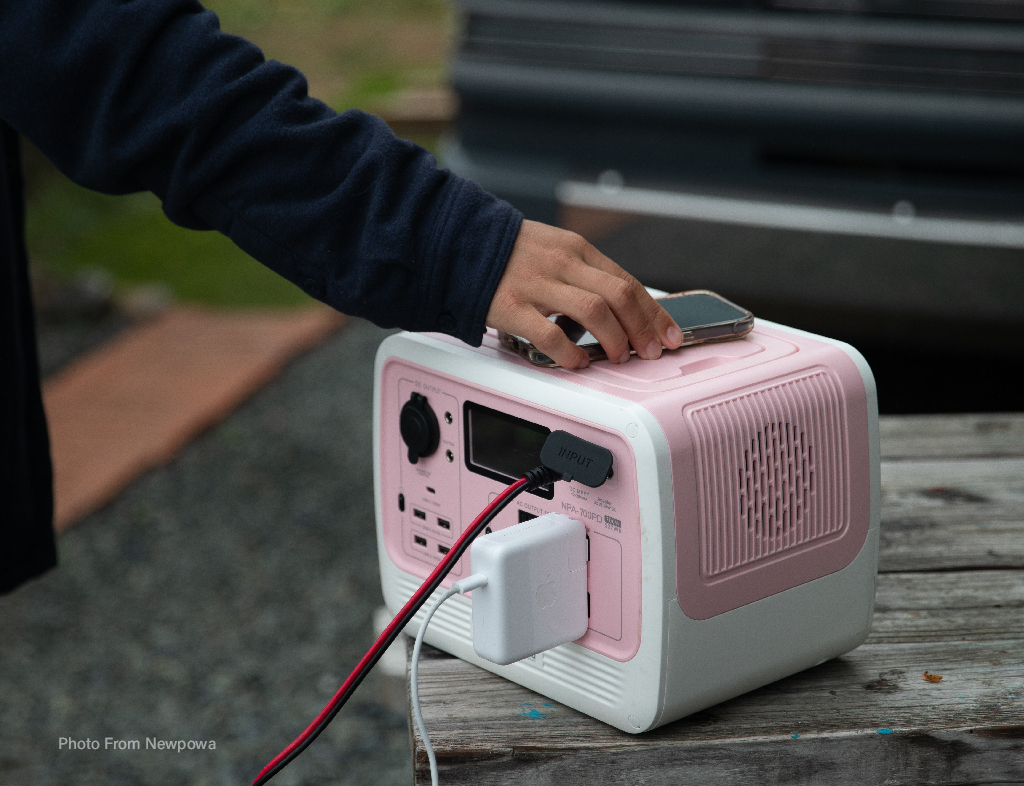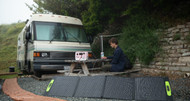ENJOYING ENTERTAINMENT OFF-GRID WITH SOLAR POWER
15th Oct 2025
Living off the grid doesn’t have to mean sacrificing the comforts of modern entertainment. Whether it’s watching a favorite show, hosting a movie night with friends, or enjoying a gaming session, solar power can make it possible to bring these experiences wherever your adventures take you. The key is understanding how much energy your devices consume and planning your solar system around it.

Televisions, speakers, and game consoles may not be the heaviest power users compared to appliances like refrigerators, but their requirements add up quickly. A typical flat-screen TV draws anywhere from 60 to 150 watts, depending on size and technology. Compact speakers may sip just a few watts, while more powerful systems can climb toward 100 watts or more. Game consoles usually fall in the 120-200 watt range during active play, though standby modes still draw a trickle. When these devices are used together, it’s not hard to see how a few hours of binge-watching or gaming can place meaningful demand on a solar system.
Because most entertainment equipment runs on household AC power, an inverter is needed to convert the DC electricity stored in your batteries. Choosing the right size inverter is critical: too small, and it won’t support the peak demand when everything powers on at once; too large, and you’ve spent money on capacity you won’t use while adding idle consumption that quietly drains your batteries. For setups that combine a TV, console, and small speaker system, a mid-sized inverter often provides a comfortable margin, but always consider peak wattage ratings rather than just averages.
Battery capacity is where entertainment choices can make or break an off-grid system. Even if your solar panels replenish energy during the day, it’s the batteries that keep your devices running into the evening. Watching a two-hour movie on a 100-watt TV consumes about 200 watt-hours, not including the inverter’s efficiency loss. Add a console or larger sound system, and the draw climbs significantly. This means it’s wise to calculate your expected usage in hours per day and match it against the battery bank, ensuring you won’t cut the night short due to lights or the screen shutting down. Lithium batteries provide deeper usable capacity compared to lead-acid, which is a major advantage for consistent entertainment use.
For those looking to stretch battery life or reduce system costs, alternatives can be surprisingly effective. Portable projectors, for example, often consume less power than a television while still offering a large viewing experience, especially when paired with a collapsible screen or even a blank wall. Compact Bluetooth speakers are far more efficient than larger sound systems while still delivering enjoyable audio. These lower-demand devices make it easier to balance comfort with energy independence.

With the right planning, solar-powered entertainment not only becomes possible but transforms off-grid nights into memorable experiences. By paying attention to power requirements, inverter sizing, and battery draw, and considering efficient alternatives, you can design a system that lets you relax, unwind, and connect, no matter how far you’ve wandered from the nearest outlet.
